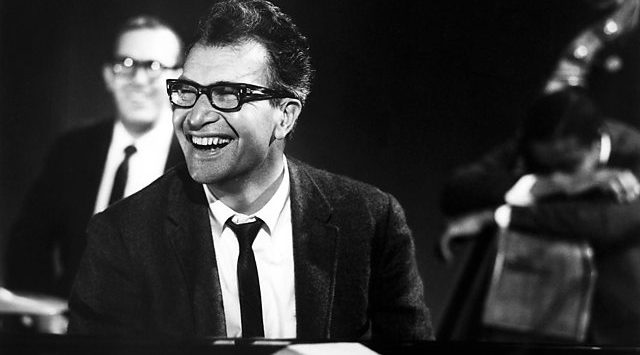Dec. 6 marked the 100th birth anniversary of Dave Brubeck. In 2003, he was named a “Living Legend” by the Library of Congress, and he is one of the most impactful performers and composers in both classical and jazz circles. His career spanned six decades, and he is remembered not only for his brilliant piano playing and composing but also his cultural ambassadorship and relentless work in anti-racism.
WABE music contributor Dr. Scott Stewart joined “City Lights” host Lois Reitzes to discuss Brubeck’s life and legacy.
Brubeck was not only a legendary composer and pianist. He was a staunch supporter of racial equality and integration for Black Americans during the civil rights era. In 1960, he canceled 23 out of 25 performances on a tour of southern colleges because of racial injustice. The bassist in the Dave Brubeck Quartet, Eugene Wright, was a Black man, and many of the colleges demanded a white substitute. Brubeck refused, and this cost him $40,000.
Stewart says, “It’s remarkable that Dave Brubeck had such far-reaching influence both within in the arts world and in culture. He talked the talk and walked the walk in making very clear his views on racism, bigotry, hate, and marginalization of the Black community. He was not only ahead of his time; he may have been ahead of our time.”
Brubeck is known for his signature albums such as “Time Out,” “Time Further Out,” and “Jazz Impressions of Japan.” He passed away on December 5, 2012, at the age of 91. He was known as one of the most influential American jazz artists of the 20th century.








